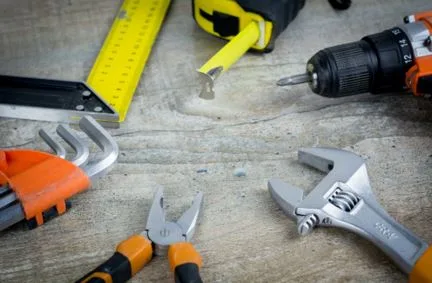How Direct Fuel Injection Changes the Way Engines Are Serviced
Direct fuel injection (DI) technology has essentially turned the entire automotive industry upside down. As a result, the entire diagnostics and maintenance process has been changed ‘from how to what.’ As the driver of a car in St. Peter’s, knowing these changes will not only help you make a good choice of service care but will also ‘promise’ good engine performance. Choosing an experienced provider for car repair in St. Peters ensures these advanced engines get the attention they require.
Understanding Direct Injection Technology
Direct fuel injection is extremely different from the traditional port fuel injection systems. Rather than injecting fuel into the intake manifold, direct injection systems inject fuel directly into the combustion chamber via high-pressure injectors. The accurate fuel delivery results in reduced emissions, lower fuel consumption, and more power output. Nevertheless, this cutting-edge technology still requires a specially trained technician and the right tools for a successful service.
The high-pressure fuel system is designed to operate at over 2,000 PSI, while conventional systems run at 40-60 PSI. The huge pressure difference means that specific diagnostic tools and safety procedures are required, which traditional mechanics may not have. Professional technicians doing car repair in St. Peters should purchase the proper tools for the job to be able to handle these complex systems with ease.
Carbon Buildup Challenges
One of the biggest issues, which has been mentioned several times, is specifically the phenomenon that carbon deposits form on the intake valves of direct injection engines. In traditional systems with port injection, the injection of fuel through the ports naturally cleans the intake valves. Direct injection engines do not have this cleaning function, hence the carbon buildup that hinders the airflow and engine performance.
The symptoms that carbon deposition causes include, among other things, the unstable running of the engine at idle speed, the drop in fuel economy, and the decrease of the vehicle’s acceleration power. To solve these problems, one has to do certain cleaning operations, e.g., walnut shell blasting or chemical cleaning treatments. They are only carried out by using special equipment and professionals who are found in repair shops that are equipped for such services.
Regular carbon cleaning has now become standard preventive maintenance for direct injection engines, usually every 30,000–60,000 miles, depending on driving conditions. Vehicle owners in need of car repair in St. Peters should ensure their chosen shop has experience performing such procedures to prevent long-term performance damage.
High-Pressure Fuel System Maintenance
Direct injection fuel systems are high-pressure, and as such are typically hard to diagnose and thus need specialized diagnostic equipment for proper testing and maintenance. Service procedures for the high-pressure fuel pump, fuel rail, and injectors are all specific and differ from those of conventional systems.
Fuel injector cleaning and replacement have to be done meticulously since precision engineering is involved in the production of injectors. These parts, if they are to guarantee efficient combustion, should have exact spray patterns and timing. Thus, if injectors go wrong, replacement could cost even more than in traditional systems due to the complexity of their design and the high precision of their manufacture.
Certainly, high-pressure fuel pumps are a must-have for attention during maintenance. Under normal operating conditions, they usually have an expected lifetime of 100,000-150,000 miles but are sometimes cut short by failure due to contaminated fuel or lack of maintenance. Diagnosis by pressure testing should be done with equipment designed to measure the extreme operating pressures, an important skill for professionals offering car repair in St. Peters.
Diagnostic Equipment Requirements
Modern direct injection engines are largely dependent on electronic control systems that keep track of a multitude of parameters on the go. Working on these engines, it is necessary to have the advanced diagnostic scanners, which can talk with more than one control module at a time. Basic code readers are not able to get detailed information that is necessary for the correct diagnosis.
Professional technicians must know the data related to the fuel trim, the parameters for injection timing, and the sensor readings for pressure. This technical knowledge demands the technicians undertake continuous training and get certifications to be updated with the latest technology. The repair shops that specialize in car repair in St. Peters make a big investment both in equipment and training to handle these complex systems properly.
Preventive Maintenance Evolution
Direct injection engines are the ones that have modified the preventive maintenance schedules as well as the requirements. There may be shorter oil change intervals due to the fuel dilution worries, especially in engines with gasoline direct injection along with turbocharging. The accurate fuel metering sometimes allows small quantities of fuel to go through piston rings, which is why the engine oil gets diluted.
Fuel quality turns out to be very important when talking about direct injection systems. Using premium gasoline with detergent additives is a good way of preventing injector clogging and carbon buildup. Regular fuel system cleaning is needed more frequently than with conventional engines.
Maintaining the air filter becomes more important because any limitation affects the exact air-fuel ratios these engines keep. Dirty air filters can cause performance problems faster than in traditional engines.
Choosing the Right Service Provider
Direct injection can be a tricky technology to handle, so vehicle owners must pick the right service providers who have the necessary equipment and have hands-on experience with DI. In order to find a shop that is qualified, questions about carbon cleaning services, high-pressure fuel system expertise, and technician certifications should be asked.
Regular service is more important than ever if you have a direct injection engine, as it can prevent expensive repairs in the future. Carrying out the maintenance as recommended by the manufacturer and using good-quality fuel and oil products will ensure smooth performance for years. With reliable car repair services, your vehicle can stay in peak condition while leveraging the efficiency and power of direct fuel injection technology.
Fuel injection technology that uses direct injection is the best choice when it comes to performance and efficiency. However, to enjoy these benefits and avoid costly repairs, skilled technicians and proper maintenance are essential.





